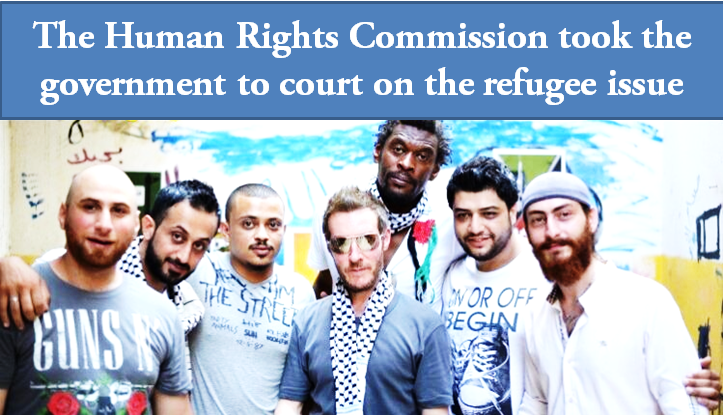Dublin: The government and ministers are accused in a human rights case over failure to accommodate refugees. In this regard, the Irish Human Rights and Equality Commission has accused the government. In addition to the affidavit given by the commission, the statements and affidavits of refugees and volunteers testifying to the government’s failures have been given.
The hearing in the commission’s case started yesterday. The government may issue a counter-affidavit. It is indicated that the hearing in the case will continue. Equality Minister Roderic O’Gorman, State and Attorney General Rossa Fanning are the defendants in the case.
Strong criticism of the Human Rights Commission
The commission made strong criticisms against the government in the high court. The commission clarified that the inability to provide accommodation for the refugees is a violation of the human rights law. It is not possible to provide accommodation to almost 3000 people who have come as applicants for international protection.
The commission points out in court that the country has failed to provide shelter, food, and basic sanitation facilities to the refugees, apart from a weekly allowance.
Procession of lawlessness
The Commission also accuses the government of violating the Charter of Fundamental Rights of the European Union, the European Convention on Human Rights, and the Irish Constitution when it comes to refugees.
IHREC’s lawyer, Eoin McCullough, argued that under Article 1 of the Charter of Fundamental Rights of the European Union, the state has an obligation to provide refugees with adequate living conditions.
He reminds us that the High Court has previously ruled that not being able to provide physical necessities such as accommodation, food, and basic sanitation is a violation of European law.
Refugees on the streets
The commission approached the court in December. After that, the government failed in the case of 2,807 people who arrived in Ireland. As of May 10th, 1,715 people were on the streets. He alleges that their health and lives are in trouble.
The lawyer also argues that the latest figures from the Department of Integration show that 2,000 people who sought international protection last year have yet to be accommodated, most of whom are living in tents along Dublin’s Grand Canal and near the International Protection Office on Mount Street.
Allowances are not enough
McCullough told the court that the €113.80 payment for accommodation, food, and clothing was grossly inadequate. But not being able to provide accommodation is a major drawback.
The government’s position is often that the government is doing its best. But he argued that there is no maximum limit in terms of the law and the legal obligation must be fulfilled.
Refugees and others have given statements that even if they pay money, they do not get accommodation in the country.
The Irish Refugee Council’s affidavit says refugees are being hampered in booking accommodation due to lack of identification documents such as passports and driving licenses.
Irish Samachar English News
{OR} Kindly click to follow the Irish Samachar News channel on WhatsApp


Comments are closed.